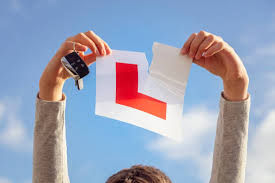On why three is the perfect number (for us).
- sarahhadfi
- Aug 22, 2021
- 4 min read
I love the Radfords and the Duggars and TV shows called things like “15 kids and counting”. Homes with big sibling groups look like so much fun and chaos. I've blogged previously on how perhaps as a reaction to my growing up as an only child, the thought of a house full of children really appeals ( https://sarahhadfi.wixsite.com/website/post/on-balancing-needs ). And yet here we are with just our three lovelies.
The average number of children in the UK is 1.7 but my observation (no evidence) is that the average UK church-going family would be significantly higher. We believe children are a blessing from God. I know a fair few church families with four children, and sometimes I feel not so secretly jealous.

But we’d said we’d have three and we did and it made sense. With three children, we felt at capacity. We were bursting out of our little house. We literally hadn’t had an unbroken night’s sleep in years. Besides, three has lots of benefits: three fits in the back of a car, three still gets in on a family ticket at tourist attractions, three is still fewer children than the parents have arms, three is a happy little gang. Three also feels like a sensible compromise: it’s bigger than average but without being so large as to be weird. So after baby number three we considered ourselves done, we researched LARCs (reversible as opposed to surgery just in case) and began purging ourselves of all the baby gear.
This was not an easy process. The youngest and I both cried when someone came to collect the cot. I hung onto the buggy for far longer than necessary till it got mildewed. My attempt at selling loads of baby stuff at an NQT sale was also pretty traumatic as after hours of bagging things up and printing and pinning on labels, most of the stuff didn’t even sell, and so my husband just donated everything to a Syrian refugee camp (I’m slightly tickled to think that somewhere on the Turkish border, a bunch of brave English-reading refugees might all have been putting down their babies, drinking a half a litre of water, and expressing from their right breasts, at exactly 12.20pm, thanks to my extensive collection of Gina Ford books). Now we’ve got a bit more space, there’s also stuff we got rid of, like a playmat, that I wish we’d kept hold of for when friend’s children come to play.
According to a Today.com survey, mothers of three are the most stressed parents (whereas mothers of four are more relaxed – perhaps when you hit four you just accept the descent into chaos?) Three is an odd number and an awkward number; three is a pair with one left over. I’ve questioned our stopping at three plenty of times. Encouraging friends would say, “You could totally handle another one!” Yes, we’d cope, but would it have been the wisest choice?
At a recent church mums meeting, a friend asked for prayer than she’d be able to make more time for her four children one-one. “My oldest is nearly ten,” she said, “I need to get times in with each of them before their childhoods are over.” This really struck a chord with me.
Our three boys are very different in personality but I still very much treat them as a collective: I call to them, “Boys!” and we do activities together. They all have to learn the piano because it is convenient to do it that way. They don’t get a great deal of individualised attention during the day, although we’ve tried to stagger bedtime so they at least get some undivided parental input in the evening. But with her words prompting in me a new resolve to carve out more one-one time with them (for example, I plan to get them to help me with the cooking one day each) it finally occurred to me: three means when I spend time with one boy, the leftover two have a friend in each other to occupy them. This basic and obvious bit of maths has been a revelation to me this week! Three is a great number because it means one for a parent, and two for each other, on rotation!

And I’m trying to embrace the threeness. In holidays and in lockdown, the boys really come to appreciate each other’s company. It’s lovely to see the flow of different pairings and games and who takes the lead. As they get older, they are also getting better at usefully occupying themselves, taking themselves off to read or write a story, especially now they have their own rooms, so sometimes that thins down numbers to a pair anyway. And in stopping at three, perhaps that allows for some leftover capacity, a couple of spare seats at the back of the seven seater, to bring in more children or to help out a friend with childcare.
I’m not saying that four wouldn’t have been nice, or that I never dream of four. In fact, I’m sure there are great arguments for all different family sizes. The average Amish family has seven, and their lives look pretty idyllic. Only children get lots more attention, and money and space is a lot less stretched. There are no bad numbers.
But for us, I think three is the magic number. But feel free to lend us some extras sometimes please.



Comments